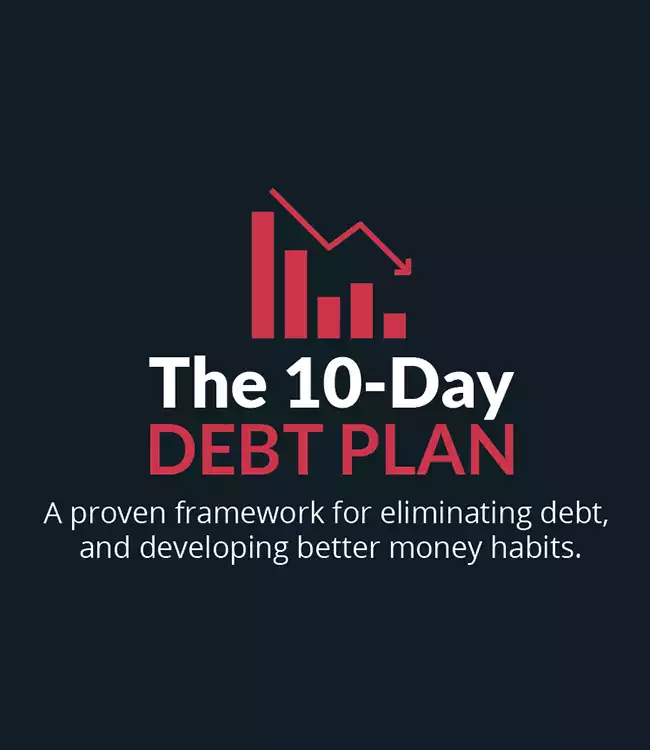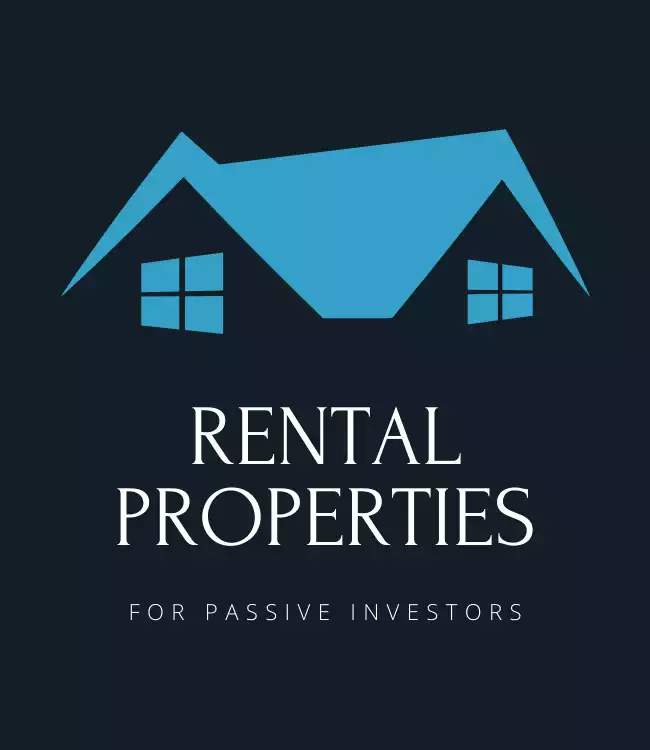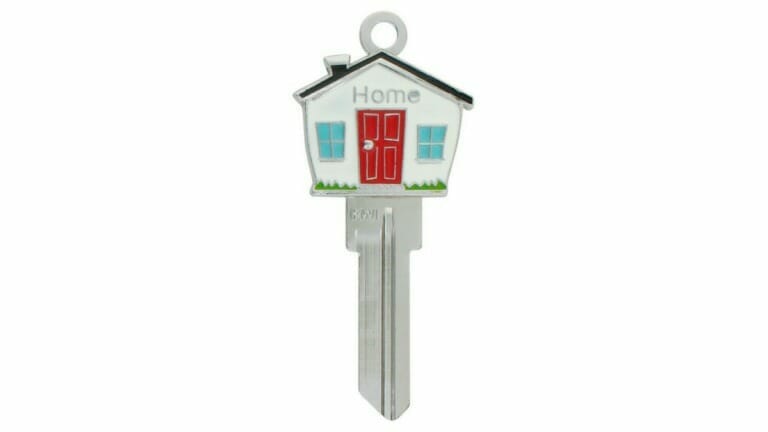Mortgages are one of the most common tools people use to purchase a home. It’s an emotional investment; where you live, where your kids go to school, how much you can spend each month, are all tied to your mortgage. A typical mortgage contains hundreds of pages of legal jargon. When you mix money, emotions, and stacks of paperwork, it’s crucial you know the basics.
We appreciate that hardly anyone has the bandwidth for all the fine print. We’re here to help you figure out what a mortgage is and what the best option is for you.
This article will outline the essential points and processes wrapped up in all the applications and paperwork you have to sign.
What Is a Mortgage?
A mortgage (also known as a mortgage loan), is a loan for financing the purchase of real estate. A mortgage is the most common tool people use to buy a house without the cash upfront.
Why are lenders willing to shell out so much money to homebuyers? A mortgage will commit the house you buy as collateral. It means your home will be the lender’s security for the repayment of the loan.
You technically own the house as long as you make your payments.
The lender will be able to take over your property and sell it if you stop making payments (this is the dreaded foreclosure).
But if you hang onto your home and regularly make payments, there is the opportunity to earn equity in your home.
Home Equity is the difference between the current market value of the property and what you owe on your mortgage. Property values have historically appreciated over time, providing people a positive return on their investment (if you can ride out the market dips).
When you sell your home before you pay off the mortgage, you will have to repay the lender the unpaid balance of your loan. You keep all the equity! You can also leverage your equity to refinance your mortgage with a lower interest rate.
But a lot can happen before then. Let’s get into the mechanics of the mortgage.
How Does a Mortgage Work?
Before you get a mortgage, you should understand how it works. A mortgage payment isn’t the equivalent of paying a lump sum of rent each month. The amount of money you borrow, your interest rate, and your loan term will dictate the size of your monthly payment.
PITI Explained
Mortgage payments are typically broken down by Principal, Interest, Taxes, and Insurance (PITI).
- Principal: This is the amount of money you borrow.
- Interest: When you hear “mortgage rates,” they’re referring to your interest rate, or Annual Percentage Rate (APR). APR is the interest rate plus any additional costs. An interest rate, for example, can be advertised as 3.5% to get your attention but could be a 4% APR after fees. Read the fine print.
- Taxes: Owning property means you’re paying property taxes plus any additional government bonds and special assessments. Property taxes vary by state, county, and city.
- Insurance: Lenders require you purchase homeowner’s insurance to cover the value of the home and property.
Private Mortgage Insurance
Private Mortgage Insurance or “PMI” (sometimes also known as a “mortgage insurance premium”) can be an additional cost on your monthly mortgage payment.
Lenders require PMI if you don’t make a 20% downpayment. They view homebuyers who put less money down as a riskier investment. You’re essentially buying an insurance policy for the bank.
It’s not ideal, but you should weigh the cost against the value of your investment. PMI is typically assessed annually at 0.5%-1% of the amount of your mortgage.
Private mortgage insurance can represent hundreds of dollars in extra fees each month.
However, saving 20% may otherwise put a home out of reach, especially if you live in a high-cost housing market. PMI may have to be a part of your investment.
The good news is that PMI doesn’t run for the life of the loan.
Borrowers can request to remove PMI when the principal balance of your home reaches 20%. Refinancing, after increasing equity, can also eliminate it.
This free course outlines a proven framework that thousands of people have used to eliminate their debt, develop better money habits, and start building a secure financial future.
What Do You Need to Get a Mortgage?
Getting a mortgage requires money, credit, and lots of paperwork. These metrics determine what type of mortgage you qualify for, how much you can borrow, and your monthly payment. Here’s what you’ll need.
The Down Payment
Typical mortgages require a downpayment between 5%-20% of the purchase price of the home. The 20% threshold is the standard of what’s known as a conventional loan (more on those below).
The downpayment is another area to consider an investment trade-off. A substantial downpayment goes hand in hand with a lower monthly payment and superior interest rates.
Larger down payments also provide more of a cushion against a sharp market downturn that could reduce your equity.
Smaller down payments keep your investments liquid or get you into a home sooner. Twenty-percent may seem unreasonable if you live in a high-priced market.
Explore what you can afford (or save) and how much money you feel comfortable investing. You should plan to have some savings before you are ready to buy a house.
Upgrade offers high-yield interest savings accounts that can earn a safe return on your nest egg.
Closing Costs
The down payment isn’t your only cash need. Closing costs are additional fees assessed by the lender to process your loan.
Closing costs may include fees for all kinds of different activities lenders cook up: appraisals, credit reports, filing, loan origination, mailing, and title insurance.
These costs typically run between 2%-5% of the loan amount. It could be thousands of extra dollars you’ll need to account for in your budget.
Some lenders will cover closing costs or reduce them in exchange for a higher interest rate. Others may cover costs with no catch as a competitive driver.
You may also be able to finance closing costs as part of the mortgage. It’s worth asking about, at the very least.
A Good Credit Score
Lenders will typically run three credit reports and use the lowest score to asses your interest rate. An excellent credit score earns you lower interest, reduces the time needed for approval, and saves you thousands of dollars over the life of the loan.
Excellent credit should be the number one priority of your home buying plan.
If you’re buying with a partner, they’ll use the lowest score on both of your credit reports. It’s a good time to make sure you and your partner are on the same page about money.
Low Debt
Your debt should be manageable before you think about a mortgage. Lenders typically won’t fund it if the borrowers Debt-to-Income Ratio is higher than 40%.
It means you’re debt payments can’t account for more than 40% of your gross monthly income (your income before taxes). The best rates come with low (or no) debt.
Be sure you focus on paying your debt down to a reasonable level before applying for a mortgage. And don’t even think about it until you’ve paid off all your credit cards.
Documentation
Home loans aren’t given out lightly. Lenders typically require lots of different documentation to process your application. Start gathering these things now.
You’ll likely be required to come up with a few different types of documents, including:
- Employment: W-2’s and tax returns (they may want to contact your work too)
- Income: Your most recent paystubs
- Assets: Financial statements including checking, savings, investment portfolios, and retirement accounts.

What Type of Mortgage Should You Get?
Mortgages are big business for all kinds of financial institutions. Banks, credit unions, private mortgage lenders, and mortgage brokers are all competing.
All the competition in the market creates a variety of loans at your disposal. It’s critical to understand what type of loan you’re applying for and what it will mean over the long term.
Mortgages come in all shapes and sizes.
Tweet ThisWe outlined the most common types of mortgages you will encounter.
Fixed-Rate Mortgage
A fixed-rate mortgage locks in your interest rate for the entire life of the loan.
Fixed-rate mortgages are homebuyers’ preferred option because the monthly payment of principal and interest remains constant each month. Having a predictable and reliable housing cost is a great foundation for any budget.
Adjustable-Rate Mortgage
An adjustable-rate mortgage (ARM) loan starts with a fixed rate of interest for a predetermined period (typically between one and five years). Initial interest rates are usually set low to entice borrowers.
After the fixed-rate period, it adjusts at intervals (every month or year). It can create a risky proposition as rates are unpredictable, and payments can balloon.
Always read the fine print on an adjustable-rate mortgage.
ARMs can be advantageous if you know you’ll only be living in the house for a specified period (and can weather the hit of a depressed market).
But, it’s a riskier proposition. Potential rate increases could saddle you with new payment demands that are more than you can afford.
What’s the Difference Between Private and Government-Guaranteed Mortgages?
Your mortgage options also vary within the private and government-backed markets. Typically, private mortgages have tougher approval requirements because they don’t have the backing of the federal government. Let’s examine other differences between the two.
The Private Mortgage Market
Conventional Loans
The standard of the private mortgage market is known as a conventional loan. These loans require borrowers to meet certain standards, including :
- a 20% downpayment (or less with PMI)
- a credit of at least 680
- a Debt-to-Income ratio no higher than 40%
Lenders require these standards since a government guarantee doesn’t back these loans. It means they’re on the line if you default.
Fannie Mae & Freddie Mac
Lenders favor mortgages that meet conventional standards (and fall within a certain price threshold) because Fannie Mae and Freddie Mac can flip them.
Fannie and Freddie are government-sponsored enterprises that purchase mortgages.
It’s a little game of semantics. They’re technically not government-guaranteed even though they’re government-sponsored.
Simply put, they’re organizations with a lot of money to buy or guarantee mortgages. It gives lenders the liquidity to sell your mortgage and get back on the market.
It matters to you because conventional borrowers can qualify for competitive mortgages and the best interest rates.
Government-Guaranteed Mortgages
FHA Loans
There’s still hope if you’re in the homebuying market but don’t have all the qualifications for a conventional loan.
The Federal Housing Administration (FHA) will guarantee mortgages from approved lenders for borrowers with smaller downpayments and lower credit scores.
FHA loans are available to borrowers with a 3.5% downpayment. Lenders are willing to accept these riskier investments since FHA pays for your mortgage if you default.
The trade-off is the FHA requires additional insurance premiums (similar to PMI) that increase your total loan cost and your monthly payment.
VA Loans
Are you active duty or a military veteran? The Department of Veterans Affairs offers mortgages for active duty, veterans, and surviving spouses.
Check out the VA eligibility requirements to see if you qualify. They guarantee mortgages with low (or zero) down payments, no PMI, and limited closing costs.
How Does a Mortgage Application Work?
Here are the necessary mortgage steps to follow when you’re ready to start home shopping.
Get Pre-Approval
Contact different lenders to shop and compare the best terms and interest rates. Fill out an application (online, over the phone, or in-person) to get pre-approved for a mortgage.
Pre-approval is like a test run to see what lenders will let you borrow based on your savings, assets, and credit score.
Offers should be provided free of charge, and this won’t commit you to any contracts. Make sure their offers include all fees and expenses.
Getting pre-approved informs sellers you’re a serious buyer with the resources to complete a deal. It will also help you understand what’s affordable.
Pick Your Mortgage and Make an Offer
When you’re ready to submit an offer, contact the lender with the best deal for you to secure final approval for your mortgage.
Picking your home can be emotional, but picking your mortgage should be cold and calculated.
Consider all the costs, terms, and fees upfront and over the long run.
Closing
The seller has accepted your offer! Before you get the keys, you have to close. Closing a mortgage involves getting all the documentation and money to a neutral third party.
This is known as an escrow account. Getting all the documents and money sorted out in escrow varies by lenders, and typically falls within 20-40 days.
When everything is ready to close, you’ll sign all the paperwork and get the keys to your new place.
Amortize Monthly
Now it’s time to start paying off your mortgage.
Most mortgages are designed to amortize (that’s when you pay off a debt in equal monthly installments). Amortizing payments go primarily to interest at the beginning and gradually shift towards paying down the principal.
Paying off the principal is key to paying off the mortgage and increasing your home equity. If you opt to pay extra on your mortgage on any given month, be sure to contact your lender first, so they apply it to the principal and not interest.
How Much Can You Afford?
Every mortgage is unique, but you can still do some prep to get a baseline understanding of what’s affordable. We recommend trying out a mortgage calculator to estimate how much you’ll need.
Tinker with the downpayment and interest rate options to understand how significantly they impact your monthly costs. It could be the kick in the pants you need to get your savings up or credit score improved. Every dollar counts.
Property taxes and insurance can fluctuate based on your city, county, and state. Location, Location, Location doesn’t only refer to real estate prices. Be sure to understand your local tax obligations.
This is just a start. Don’t hesitate to contact a professional. A real estate agent, lawyer, loan officer, or accountant can all offer additional help.
Additional Costs
The costs of owning a home go far beyond a mortgage. You need to budget money every month dedicated to maintenance and repairs.
A popular rule of thumb is saving at least an amount equal to the square footage of your house.
For Example: Save $2,000 annually for a 2,000 sq ft house. And DIY when you can.
Be sure to think about other costs affected by your move. Will you need to send your kids to private school? Will you be increasing the cost of your commute?
Consider your home’s impact on your total budget, not just your housing costs.
Opportunity Costs
Mortgages aren’t necessarily the right investment for everyone.
A home is NOT a liquid investment.
Selling a home isn’t like flipping a stock. It takes time and could cost you money. You may also have to ride out dips in the real estate market.
You should consider the opportunity costs of locking up your investment capital in a home. There are now new and accessible ways to invest in real estate aside from a mortgage.
Companies like Fundrise are making real estate investments easier.
You could also consider buying a
Andrew started investing in real estate using a turnkey property investing strategy, then created a course, Rental Properties for Passive Investors, documenting his experiences and highlighting best practices of this approach.
Our proven, data-driven approach to building a portfolio of income-producing rental properties that perform in the long-term.
See the course here.
Listen Money Matters is all about investing in rental properties.
Start Your Next Move
What’s your next move? Checking your credit report? Starting a downpayment savings fund? Getting pre-qualified?
Everyone’s on a different path, but knowledge is the foundation for any journey. Knowing the basics of a mortgage is the best way to ensure you’re off to a solid start.



